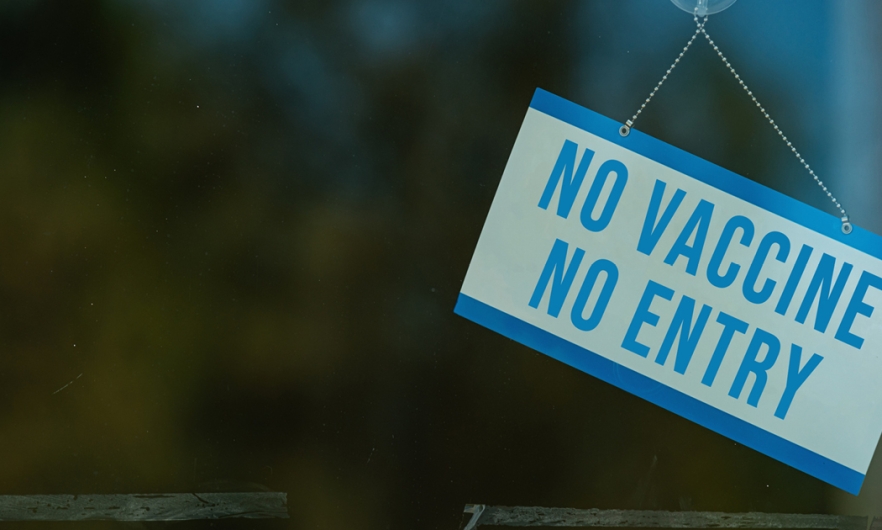By ROD AMNER
Rhodes University will appeal the Commission for Conciliation, Mediation and Arbitration (CCMA) ruling that found the dismissal of two of its two employees “procedurally and substantively unfair”.
The university has six weeks to file a review application to the labour court to challenge the CCMA’s decision.
David Drennan, the former chief technical officer of the Rhodes Department of Zoology and Entomology, and Heidi Myburgh, a former secretary in the Rhodes Department of Computer Science, refused to comply with the university’s Covid-19 vaccine mandate policy.
The CCMA awarded them R256 445 and R146 484, respectively, as compensation for their ‘unfair dismissal’ by the university.
This ruling opened the door for more former Rhodes University employees to claim compensation for unfair dismissal, according to Wheeldon Rushmere and Cole attorney Mike van der Veen, who successfully represented the two former Rhodes employees in their CCMA challenge against the university.
But, the longer they wait, the harder it will get.
In a case of unfair dismissal, litigants must apply for the matter to be referred to the CCMA within 30 days of their dismissal, Van der Veen said. “If they don’t do it within 30 days, they may need to apply for condonation. The door has been opened. But there is a hurdle before that door,” he said.
Litigants must apply to the CCMA to ‘condone’ the fact that they failed to refer the dispute timeously. Condonation, in this sense, is the action of excusing a party’s failure to comply with the timeframes prescribed for the referral of a dispute to the CCMA.
CCMA Commissioner Francois du Toit ruled the dismissals were unfair because:
- The university failed to council the employees and failed to take steps to reasonably accommodate the employees into positions which did not require vaccination; and
- The exemption policy did not afford employees a reasonable alternative to mandatory compliance with its vaccination policy because the university failed to notify employees of their constitutional right to refuse the vaccination on the ground of bodily integrity and did not allow employees to apply for the exemption on constitutional grounds.
The constitutional right to ‘bodily integrity’
Van der Veen said there had been several decisions in South Africa at a CCMA level where the courts enforced the obligation on the employer to notify employees they have the right to object to a vaccination mandate based on the constitutional right to ‘bodily integrity’.
“The constitutional right to bodily integrity is stated in the regulations which allow an employer to implement a mandate. If you’re going to implement a mandate, there are steps an employer needs to follow, including the need to advise employees of this right,” Van der Veen said.
“What is quite significant in the judgment is that the university took a different approach in implementing their mandate by having an ‘exemption policy’,” he said.
However, while Rhodes employees could apply for an exemption on medical and religious grounds, they could not apply on constitutional grounds. In the CCMA ruling, Rhodes’s exemption policy was consequently found to be flawed.
The Makhanda Against Mandates interdict application
If Makhanda Against Mandates had not dropped their application for an interdict against Rhodes University’s Covid-19 vaccine mandate, this issue of constitutionality might have been highlighted in the High Courts.
“The university’s internal approach weighed up the two constitutional rights: the right to everybody working in a safe work environment versus the individual’s right to bodily integrity. And they resolved at a council level that safety trumped bodily integrity.
“But ultimately, the employees themselves needed to be given the right to raise that objection and say, ‘This is my right – I want to raise it, and these are the reasons why’. They were never given that opportunity because it was decided for them at a high level without their involvement,” Van der Veen said.
Van der Veen said he did not think the university’s prospects of a successful review would be good. “The appeal may allow the matter to let it get lost in the labour court for the next 12 to 18 months because that’s how long it takes to finalise a review.”
“At this stage, it is just a CCMA ruling. We need a labour court ruling if you want it in the law reports forever. That would be a higher court ruling on the constitutional issues, which no other court has done yet.
“Then a loss by Rhodes University against their employees would be in the law reports forever. It would be a reportable decision because it would be one of the first of its kind,” Van der Veen said.


